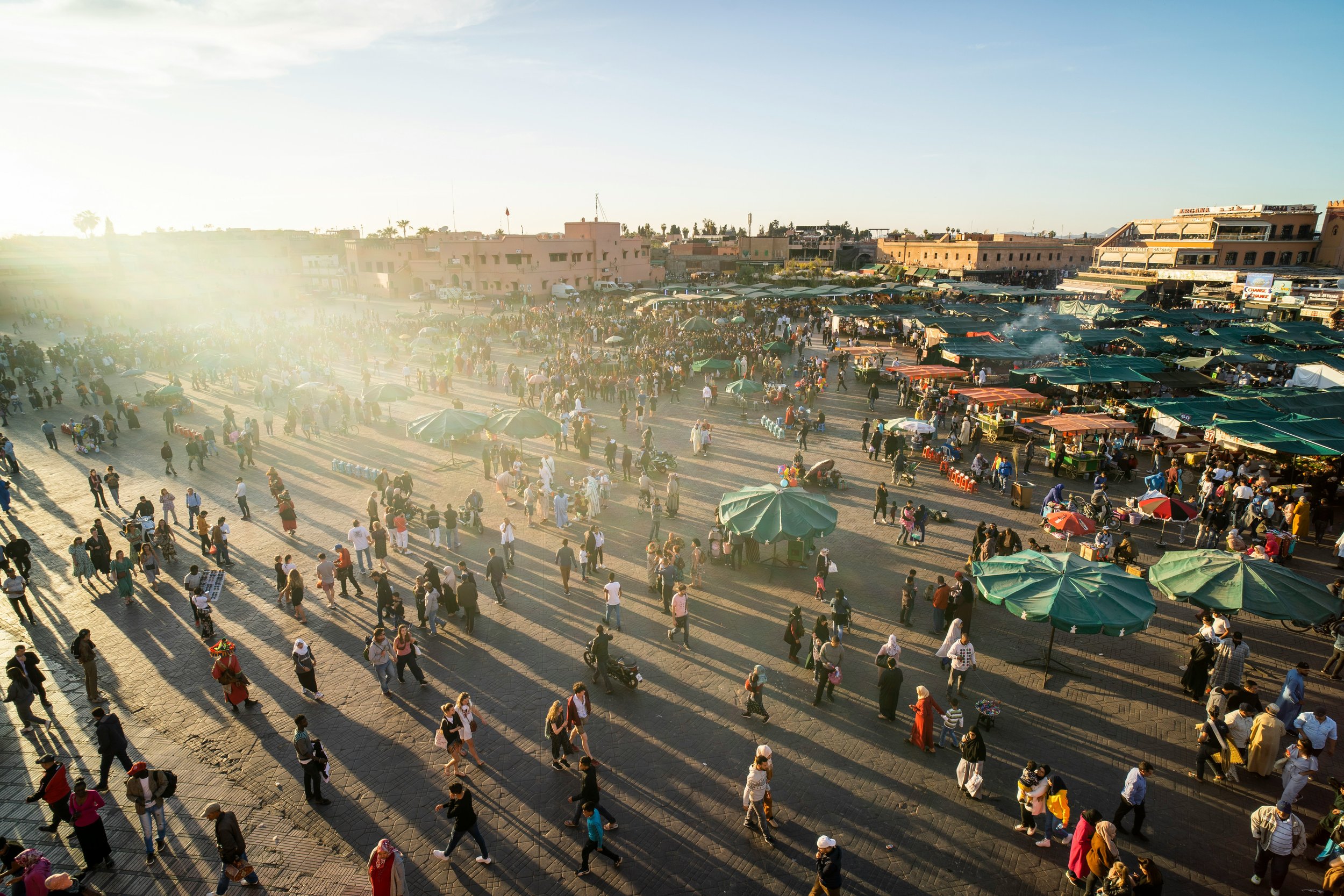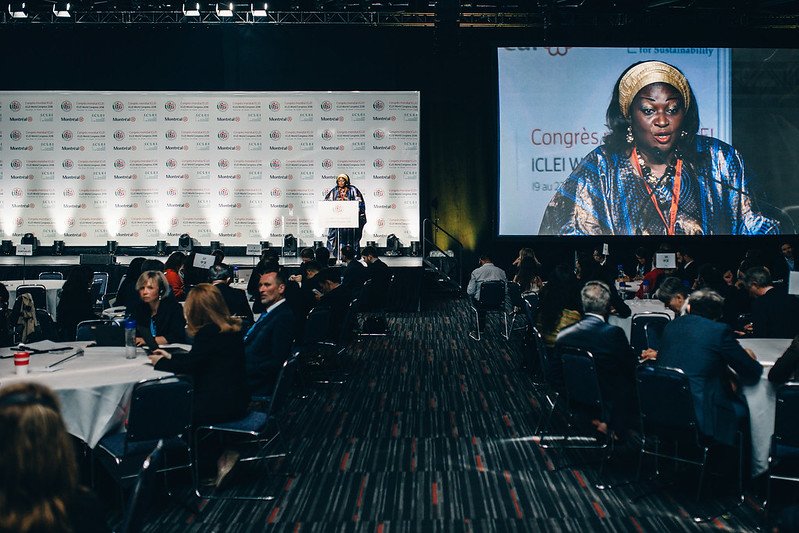
Imagining Futures
Five transformative initiatives unlocking the power of cultural heritage to transform climate action
Powered by the Mellon Foundation
Imagining Low Carbon, Just, Climate Resilient Futures through Culture and Heritage
The Climate Heritage Network (CHN) has been awarded a $1,250,000 grant from the Mellon Foundation for the “Imagining Low Carbon, Just, Climate Resilient Futures through Culture and Heritage” Project.
This transformative initiative aims to leverage culture and heritage as powerful catalysts for effective climate action, empowering communities worldwide to safeguard their cultural legacies while promoting sustainable futures.
The Project consists of five complementary initiatives coordinated by the CHN (through its North America Region Secretariat). Each Initiative is led by a different CHN member organization serving as a Lead Partner. The initiatives take forward key elements of the CHN 2022-24 Action Plan. The Project targets the CHN's North America and Africa regions but is designed to have global impact. Read on to learn more.
Project Purpose
Almost 10 years after the adoption of the Paris Agreement, the world remains dangerously off course to meeting its adaptation and mitigation targets. These shortcomings are in part attributable to the failure of climate change planning, policy, and finance to engage with the historical origins of anthropogenic climate change (e.g., colonialism, globalism) and the socio-culture enablers of transformative climate action. Put another way, contemporary climate planning suffers from a pervasive failure to help people imagine plausible ways of living that are not wedded to the carbon economy and the systems that support it.
The exclusion of the socio-cultural dimension in climate action finds parallels in the inattention to the climate change crisis in cultural heritage practice. Visionary examples of culture-based climate action exist, but their promise is not being realized at scale. This is so even in frontline communities already experiencing loss and damage, and even in cities and regions with otherwise robust climate action pledges.
These shortcomings leave both the cultural heritage field and the communities it serves ill-prepared to manage change - let alone help lead it. Many of those most adversely affected have done the least to contribute to climate change, and also typically have the fewest resources to protect their cultures and heritage.
The Project aims to flip these paradigms.
Project Outcomes
Culture – from arts to heritage – enables transformative climate action by helping people to imagine and realise low-carbon, just, climate resilient futures. Unlocking that potential is the Theory of Change on which the Project is based and its ultimate aim. In support of this aim, the Project will deliver three main benefits:
(1) Increase Culture-Based Climate Action: To increase the quantity and quality of culture-based climate action at local, regional, national, and international scales and across sectors.
(2) Transform Climate Policy via Cultural Heritage: To transform climate policy at all levels by using culture and heritage to embed in policymaking social imaginaries of low-carbon, just and fair, climate resilient living, both to improve the efficacy of the climate response and to support local cultural voices by validating their climate work in ways that create entry points for them in local climate governance and policy making.
(3) Support Partner Communities: To support and showcase the #climateheritage work of the specific community partners organizations selected by each Initiative, including those doing innovative culture-based climate action in communities on the frontlines of climate impacts.
Lead Partners
Initiative 1: Climate Heritage Network North America Region
This initiative will focus on building capacity and influence in the Climate Heritage Network’s North America Region. The region is currently chaired by the City of San Antonio's Office of Historic Preservation (OHP). OHP is dedicated to safeguarding the city's cultural, economic, and environmental heritage, ensuring the preservation of its unique identity, competitiveness, and authenticity. A key highlight of San Antonio’s heritage is the San Antonio Missions, a UNESCO World Heritage site that celebrates not only the architectural marvels of the five Spanish Colonial structures but also the vibrant intangible heritage—cultural traditions such as music, performance, and cuisine. This respect for intangible heritage is further reinforced by UNESCO’s designation of San Antonio as a City of Gastronomy.
In concert with the Africa Region Chair and Secretariat, the project will seek to develop and adopt a sustainable organizational and financial structure for the CHN, foster collaboration among CHN Regions, and elevate the Region’s diverse cultural voices in climate planning and policy.
In addition to coordinating the overall implementation of the Imagining Futures Project, this effort will include development activities and fundraising to support the work of the CHN into the future. With a growing, active network of members comes increased capacity to expand the organization’s reach and connectivity. A focus will be diversifying CHN membership to better include communities on the frontlines of climate impacts.
Pictured: One of OHP’s community window workshops.
Initiative 2: Climate Heritage Network Africa Region
Through the project, the (CHN) Africa Region Secretariat - currently chaired by the Cross-Cultural Foundation of Uganda (CCFU) - will seek to create a sustainable organizational structure that bridges both Anglophone and Francophone communities, promoting collaboration and empowering African voices in climate-related discussions and projects.
The initiative will therefore expand CHN’s membership throughout Africa and deepen its engagement with French-speaking organizations and communities. By supporting African leadership in environmental advocacy and climate program implementation, the project seeks to integrate cultural dynamics into climate action efforts. Additionally, it focuses on achieving financial sustainability through effective resource mobilization and active membership engagement.
Key objectives include creating a diverse working group to guide the initiative, hosting events and webinars to foster member connectivity with an annual membership growth target of at least 10%, and facilitating the participation of at least two members in international climate conferences each year to enhance advocacy efforts.
Image credit: Cross-Cultural Foundation of Uganda (CCFU)
Initiative 3: Heritage Adapts to Climate Alliance (HACA)
Across the globe, the omission of heritage from climate change adaptation policy and finance is a barrier to scaling up work to protect culture and heritage from climate-related risks.
But the new Global Goal on Adaptation Framework (GGA) adopted by national governments around the world offers an opportunity to begin fixing this problem. The GGA Framework guides governments in their efforts to protect people and ecosystems from climate change, and includes the protection of heritage sites and cultural practices as one of its seven thematic climate adaptation targets.
This breakthrough recognition of heritage in international climate policy offers a path to climate finance for heritage adaptation projects and to including heritage advocates in local, regional and national climate policy making. The Heritage Adapts to Climate Alliance (HACA) has been launched to ensure that this potential is realized through robust, timely engagement by heritage advocates in the implementation of the GGA.
Led by the Preserving Legacies project, HACA is a volunteer community of practice open to all community advocates, knowledge holders, and heritage practitioners working at the intersection of heritage and climate adaptation. Through the HACA online platform, HACA members can:
Receive up-to-date information about opportunities to participate in the implementation of the GGA and access a library of GGA information.
Collaborate on the submission of research, insights, and experiences to the UNFCCC’s UAE – Belém work programme to develop GGA indicators, including for measuring progress in protecting heritage sites and cultural practices from climate change.
Help mainstream GGA heritage policy outcomes into national policy and help local communities leverage them for effective, equitable adaptation of their cultural heritage.
Join informal discussions to assess the current state of knowledge on adaptation of cultural heritage and efforts to fill gaps.
In addition to funding from the Mellon Foundation, HACA is also generously supported by the National Geographic Society-funded Preserving Legacies project.
Pictured: Preserving Legacies in Petra, Jordan.
Initiative 4: Decarbonizing the Built Environment Through Heritage (DBTH)
This initiative seeks to integrate transformative, cultural heritage-based solutions into climate policy at all scales. Communities and organizations worldwide are demonstrating the benefits of heritage-based building decarbonization. An estimated two-thirds of the buildings that will exist in 2040 are already built. While often perceived as a liability, existing buildings offer huge potential for climate action. And yet, policies and regulations often favor new construction, leaving aside or actively creating barriers to decarbonization through cultural heritage.
Heritage-based decarbonization strategies, including building reuse, materials circularity, traditional knowledge and construction practices, offer climate solutions. The Climate Heritage Network has already begun elevating these solutions into climate and built environment policy; DBTH will expand this work by engaging frontline community organizations to draw from local heritage-based climate work, developing a peer-to-peer network and designing public and industry campaigns to champion changes to policies, codes and practices needed to scale up heritage-based strategies.
DBTH will work with communities, heritage practitioners and educators to gather replicable solutions. It will provide insight into implementation barriers, assess policy and practice levers, provide communications resources to empower regional and global advocates, and deploy targeted outreach to advance high-impact, heritage-based decarbonization strategies across the building sector.
DBTH is led by Build Buildings Lab and supported by the Architecture and Urbanism Research Hub -University of Lagos. (A+URH-Unilag) and Architecture 2030.
In addition to funding from the Mellon Foundation, DBTH is also supported by a generous grant from the 1772 Foundation.
Pictured: Deconstruction Contractor Training organized by the City of San Antonio Office of Historic Preservation.
Initiative 5: Race to Resilience Culture
The Race to Resilience Culture (RTRC) initiative, spearheaded by the U.S. Office and Africa Secretariat of ICLEI - Local Governments for Sustainability (ICLEI), seeks to build climate resilience by integrating cultural and heritage-based strategies (CHBSs) into communities across the United States and Africa. ICLEI draws on its expertise as the first and largest global network of over 2,500 local and regional governments committed to addressing the world’s most challenging sustainability issues.
The RTRC initiative aims to support vulnerable groups and communities in becoming more resilient to climate risks through the adoption of CHBSs. To meet this goal, the initiative will mobilize 75 cities to commit to enhancing culture-based actions for climate resilience and adaptation, with measurable progress reported along the way.
Key Goals for 2024-2026:
Provide CHBS capacity-building support to at least 75 local governments.
Secure commitments from 30 cities across the U.S. and Africa to adopt CHBS by 2026.
Pair African and U.S. cities in a peer-to-peer exchange that provides a deep examination of culture-based resilience strategies and innovation that is shared broadly.
Develop a data workbook with metrics for cities and regions to track and manage CHBS initiatives.
Core Focus Areas:
Support underserved communities by engaging public bodies and cultural organizations in CHBS initiatives.
Center resilience-building within cultural heritage programs.
Normalize the integration of culture in climate planning efforts.
Stay tuned for updates by visiting the RTRC webpage!
Pictured: The ICLEI World Congress in Montreal, Canada, 2018.

















